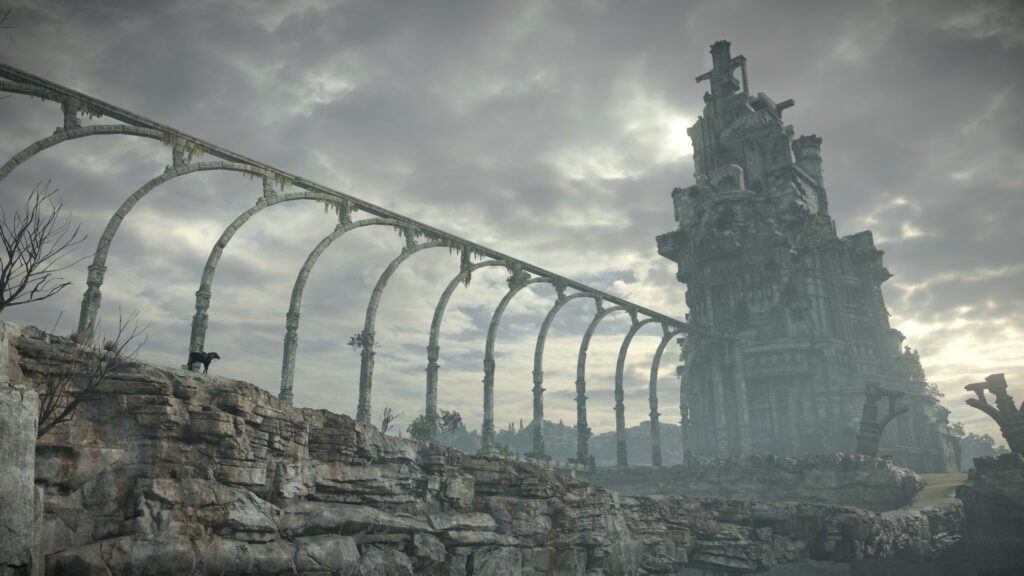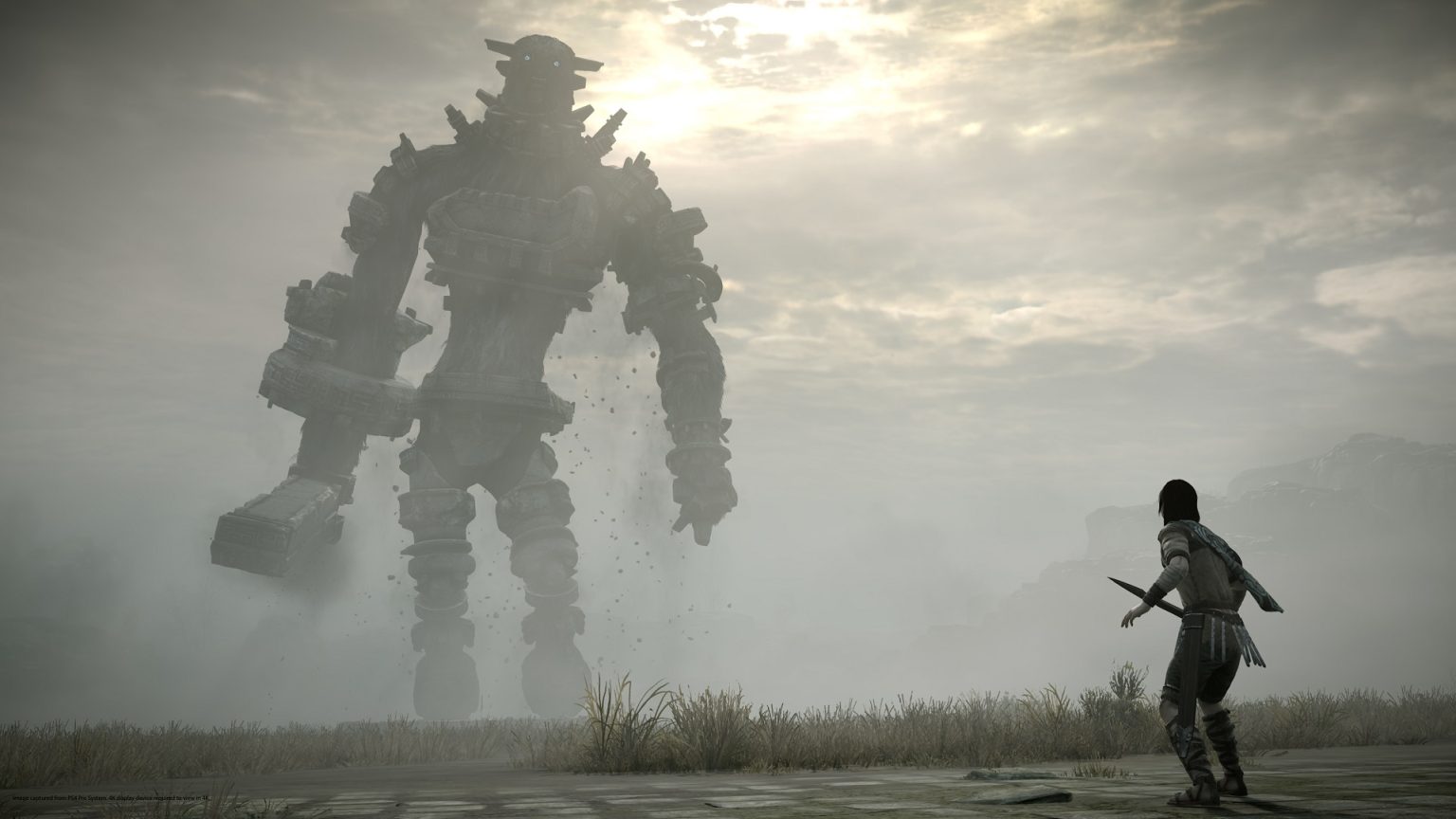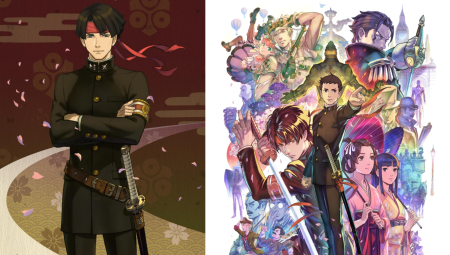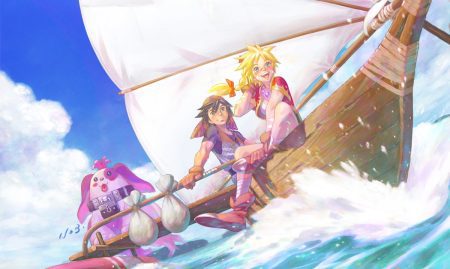Welcome to Friday Fortissimo. This week, we’re celebrating a track from a game well-heralded for its soundtrack: Shadow of the Colossus. Warning: This article contains spoilers!
Shadow of the Colossus is a game that needs almost no introduction. Still, for the uninitiated—Shadow of the Colossus is a 2005 action-adventure boss-rush game developed by Japan Studio and Team Ico for the PlayStation 2. It was remastered in 2011 as a collection for the PlayStation 3, then remade from the ground up by Bluepoint Games in 2018 for the PlayStation 4. Directed by Fumito Ueda, the game is the second in the trilogy-by-association of his three games: Ico, Shadow of the Colossus, and The Last Guardian.
The score, composed by Kow Otani, ably steps between two modes: one epic and adventurous, the other gentle and atmospheric, mirroring the game itself.
A Story of Sacrifice
Shadow of the Colossus’s story is presented with minimal exposition and dialogue; the most explicit information the player is given is that the protagonist, a teenaged boy named Wander, seeks to resurrect a young maiden named Mono who has been sacrificed due to her supposedly cursed destiny. Given a directive from a disembodied voice that identifies itself as Dormin, Wander is told that he can revive Mono, but at a cost—he must exterminate sixteen colossi, massive creatures made of stone and earth.
And so he goes. And in classic Faustian fashion, with every colossus Wander fells, the more sickly he appears, the more demonic his mien becomes. After the final colossi, Wander’s body is fully taken over by Dormin, even sprouting demonic horns, but the ancient sword he was carrying seals Dormin’s presence into the temple, and the bridges that connect the land from the rest of the world collapse.
The credits begin to roll. Then Mono awakens and follows Wander’s loyal steed, Agro, into the temple and finds a small baby boy with a pair of horns. She takes the boy and Agro to the higher levels of the temple and finds a garden, with beautiful greenery and even animals; birds chirp and fly away as a young deer comes to greet her.
And that’s where the titular track of this post begins to play.
I’m always a sucker for the sudden solo piano switch. It’s just a really good way to surprise the audience and impart a feeling of “this is different.” (See “Light of the Seven” from Game of Thrones as a perhaps more modern and culturally relevant example of this.) Every other track in the soundtrack utilizes a full orchestra, and does it well; here, the shift imbues a sense of loneliness. Wander was driven, and had purpose; Mono awakens with little if any knowledge of what has happened, and it’s the source of debate as to whether she recognizes Agro, Wander’s horse, at all. She has a horse, a temple, a baby, a garden… and nothing else.
“In the Land of Happiness” (also known as “The Sunlit Earth”) plays just as a young deer approaches Mono, and the camera zooms out following a hawk as we leave Mono, the child, and Agro behind. The song plays out as the camera traces the hawk’s path, the sun dimming and clouding over and finally ending on a shot of a full moon at night before the words “The End.” It’s a track that’s quite short (less than two minutes) and only plays this one time. And yet it’s the track that’s stuck with me more than any other (among many incredible pieces).

In Search of Happiness
Shadow of the Colossus is a game that tells little, allowing the players to infer what they want, and the conclusion follows that beat. Was Wander’s sacrifice all for naught, or will Mono, Agro, and the child find happiness? The game makes it clear that the Forbidden Lands, where the game takes place, have been completely isolated from the rest of the world following the collapse of the game’s iconic bridge. Is Mono destined to live the rest of her life alone, with just the child to keep her company?
In the original, the final shot of the game is of a darkening sky, rain clouds approaching, the quiet pitter patter of rain over the moon. In the remake, the rain is gone, the final shot less ominous. I can’t, with any certainty, tell you what Mono’s fate will be. Does she become the Queen from Ico, somehow cursed alongside Wander, or is that a stretch of a fan-theory? There isn’t, and will never be, a definitive answer.
Still, when I listen to this final piece, I like to believe… that what Mono, Agro, and the child found is, indeed, the land of happiness.
Huge video game, comic book, and anime fan. Spends way too much time watching things he doesn’t like. Hates Zack Snyder. Mains Falco.











